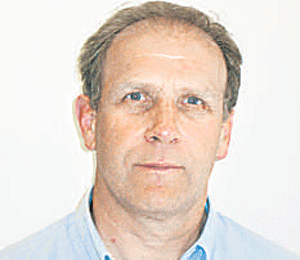Business analysis: David Levin and the virtues of a hands-on approach

Many people in business talk about their passion for what they are doing. Few exhibit it - in words or deeds - to the extent that David Levin does.
Born in Glasgow in 1935, Levin retains a boyish enthusiasm for his work at an age when most of his contemporaries are probably getting their kicks on the golf course or in other pursuits of the comfortably off. Sitting in the bar of The Capital, the discreet hotel that was widely regarded as London’s first boutique hotel when he opened it in 1969, he points to the individual flowers on the tables and the elegant silver-framed photographs on the walls as evidence of the attention to detail that he believes has been vital to his success.
Tucked into a side street that is literally a stone’s throw from both Harrods and Harvey Nicholls, the 1930s-inspired 50-room hotel has become a favoured home-from-home for discerning guests from around the world. In addition, its restaurant has won many awards and has nurtured the early careers of such well-known chefs as Richard Shepherd, Brian Turner and Gary Rhodes.
Not that Levin is one to rest on his laurels. At a time when so many well-known hotels are parts of large companies, he is proud to be an owner-operator – and makes a point of being highly visible to his guests. “It’s very important that regulars are recognised,” he says.
One could argue that it must be easy being the jolly host when you are presiding over such an obviously luxurious place to stay. But Levin makes clear that a lot of work goes into creating such an air of calm. He himself is also in a strong position to insist on high standards among his staff since he has worked his way up from the bottom of the hotel and restaurant trade.
A grammar school boy from a middle-class Jewish family, he was expected to go into one of the professions. But, to the disappointment of his parents, was struck by the hotel bug and – on leaving school – started as a waiter in the restaurant in Glasgow’s Central Hotel. Always ambitious, he worked his way through the ranks and became in his late 20s manager of the railway-owned hotel in Kyle, overlooking the Isle of Skye. There, he made waves by abandoning the policy of producing meals from shipped-in ingredients in favour of local produce, based around the area’s abundant seafood.
In so doing, he was arguably a forerunner of today’s trend in places as far apart as Suffolk and the Lake District to emphasise regional and seasonal fare. But when his boss told he was in danger of creating too tough an act for his successor to follow, he left and acquired – sight unseen – a pub between Pangbourne and Newbury that he turned into what is claimed to be Britain’s first gastro-pub. “We had a coffee machine because we wanted to persuade ladies to come in and have a morning coffee and a chat,” he explains. Levin also began to indulge his passion for wine, introducing different sorts to British customers who back in the 1960s still had very little choice.
The opportunity to open what became The Capital came about through one of the Royal Oak’s customers, a property developer who asked Levin to advise on setting up hotels. One site, off the Brompton Road, was deemed too small for a hotel, but Levin persuaded the developer to let him build a 50-room hotel there.
It would be tempting to say that the rest was history. But in fact this was only the beginning. The Capital has now been joined by The Levin, an even smaller boutique hotel just down the street, and there is also the London Bakery in White City, which supplies bread and pastries not just to the two premises but also to about 40 of the top hotels and restaurants in London. Moreover, he and his family – his wife and daughter are very much involved in the business – also produce wines for use in the hotels and restaurants at their winery in the Loire Valley.
And on top of this, Levin continues to be actively involved as visiting professor at Oxford Brookes University, where students on the well-regarded hospitality courses have a top-notch restaurant designed and developed by Levin in which to learn their crafts.
You would think that would be enough. But Levin belies his years with his undimmed love of the life. “I am still very ambitious,” he says. “I’m looking around for another business.”
In these challenging times, his drive and obvious love of what he is doing should be an inspiration. As should the handful of entrepreneurs featured on the cover of the latest issue of “Inc”, the US magazine for growing companies. “How to launch your dream company and profit from your passion,” reads the strapline. Indeed.
Join our commenting forum
Join thought-provoking conversations, follow other Independent readers and see their replies
Comments
Bookmark popover
Removed from bookmarks